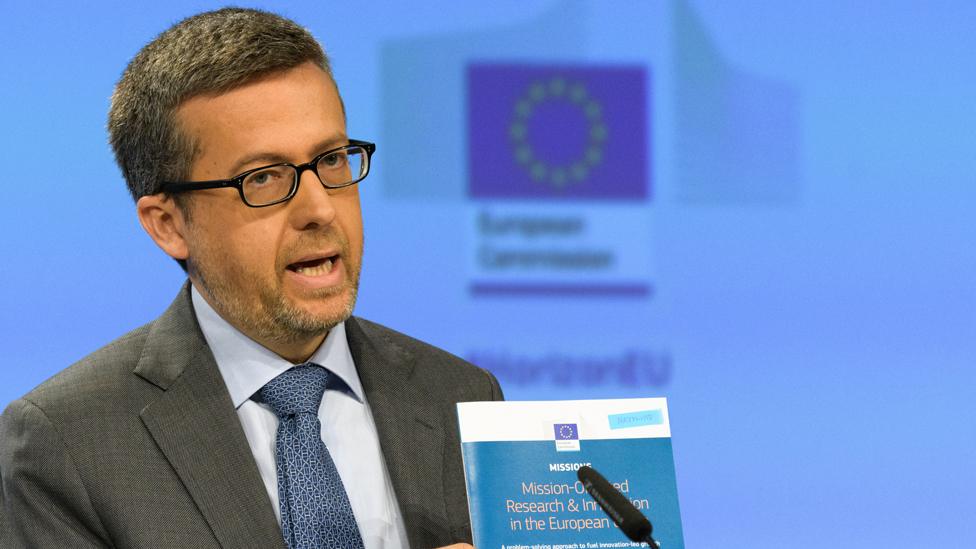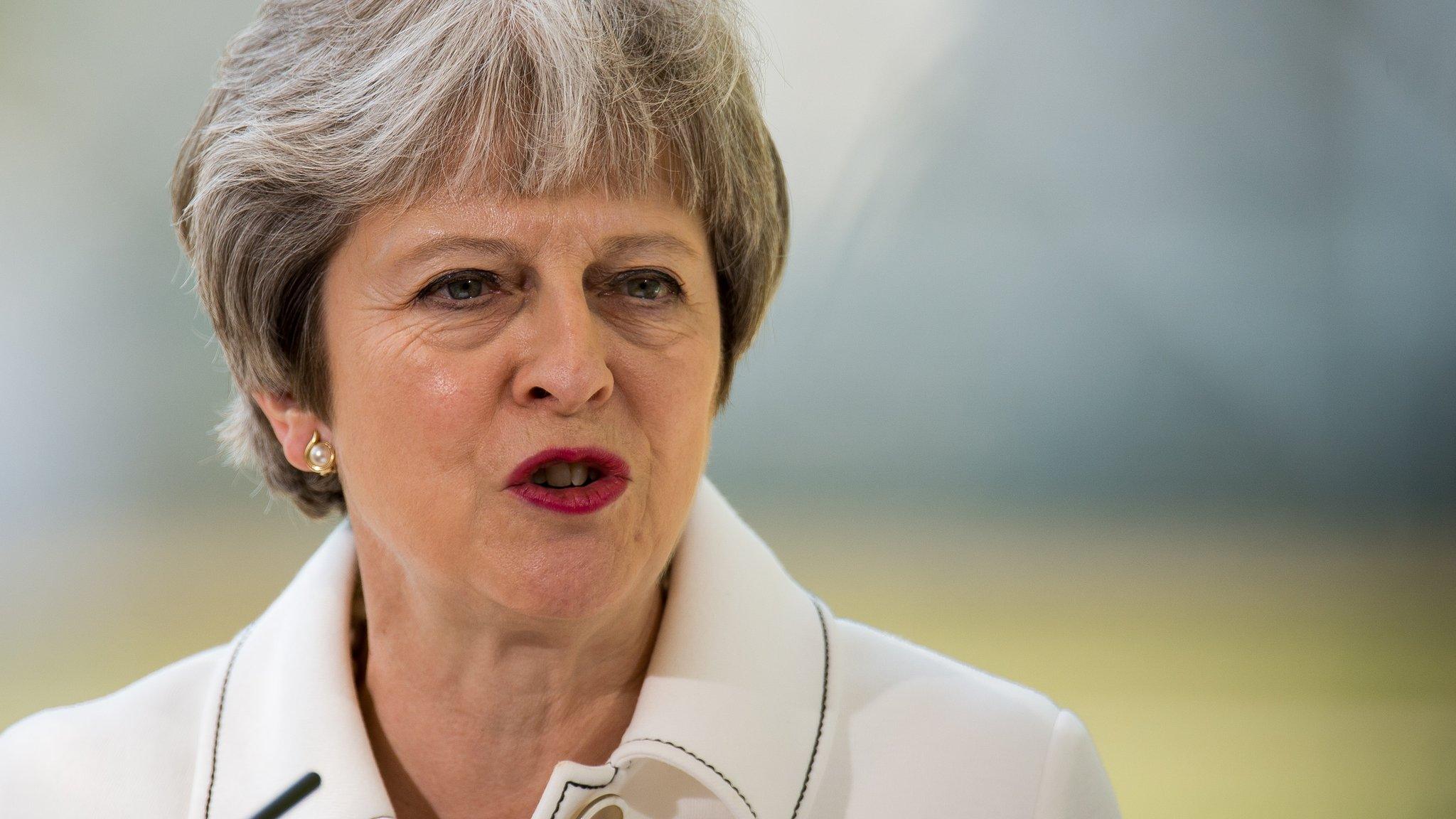European Commission hopes for big science funding uplift
- Published
- comments

Commissioner Moedas says HorizonEU is the most ambitious programme ever
The European Commission has set out how it wants to spend €100bn (£87bn) on science in the next EU budget.
The funding programme, dubbed HorizonEU, external, covers the period 2021-2027.
Expenditure would be split across three main areas, with the largest sum (€52.7bn) going on "global challenges", such as health, energy, and food.
Open science, or researcher-driven projects, would get €25.8bn; and innovation directed at taking ideas to market would receive €13.5bn.
The spending proposal was set out by Science Commissioner Carlos Moedas in a press conference in Brussels.
The Brexit calculation
His numbers come with caveats, the major one being that everything is aspirational at this stage.
The whole HorizonEU programme has to run through Europe's normal democratic channels - through debate in the European parliament and among member states. The numbers that fall out at the end of this process could look very different.
But another major point of interest of course is that Commissioner Moedas has had to lay out a plan that assumes no involvement or contribution from the UK. HorizonEU kicks in after Brexit.
This in his view makes the headline figure of €100bn look all the more ambitious.
"It is the biggest increase in absolute terms, ever," he told reporters.
"Horizon2020 was €77bn. But if you take off the UK and do 27 countries - that was €67bn. So, the increase we are proposing today is from €67bn to €100bn.
"[Science and innovation] is a priority for Europe and the Commission."
UK association
The British government recently released a position paper in which it called for a far-reaching Science and Innovation Pact, external with the EU beyond next March.
London would like to fully associate to the new programme and is prepared to pay its way, subject to how the involvement is structured and the level of influence Britain gets inside HorizonEU.
It is a critical negotiation - and not just for Mr Moedas, who would then receive an increase in what he could spend; it is vital also for the UK research community.
Science is one of the activities at EU level where Britain has got a big return on its investment.
Take, for example, the European Research Council, which is the funding line that supports some of the most successful open, "blue skies" research.
British grantees have so far taken about a fifth of all monies released by the ERC in Horizon2020 (its total for the period is €13.1bn).
The ERC will be the largest individual funding stream in HorizonEU and will rise to €16.6bn under Mr Moedas' plans.
Science and migration
"Over the 11 years of its existence the ERC has proved itself as a highly successful and prestigious source of research funding across Europe. The increase in funding promised for it in HorizonEU reflects recognition of this success," commented Cambridge University's Prof Dame Athene Donald, who sits on the ERC's scientific council.
"The strength of UK science means that the country has always been extremely successful in winning ERC grants in their highly competitive process.
"For the health of UK science going forward (including the free flow of researchers), both the community and the government recognise the importance of continued access," she told BBC News.
The UK's Royal Society set out its principles this week for future association, external with the EU's research framework programmes, which it said promote "collaborative science that is unrivalled in scale and impact".
The society called for an early agreement with the EU-27 and stressed the need for the easy flow of skilled workers to and from the continent.
'Open door' policy
Whether an association can be agreed is totally dependent on the top-level negotiations that London and Brussels are currently engaged in to define their future relationship.
What happens with a science pact is secondary to this, and will likely hang on the level of access and influence the UK is given as a "third country".
Mr Moedas said there was scope for third countries to have a bigger role than had been the case in the past. "The doors are open for that discussion," he told the press conference.
One new highlight for HorizonEU will be a European Innovation Council (EIC), which will mirror the philosophy of the ERC. Its aim will be to support individual entrepreneurs with disruptive ideas that have the potential to create entirely new markets.
The EIC would have funding of €10bn available over the 2021-2027 period.
Jonathan.Amos-INTERNET@bbc.co.uk, external and follow me on Twitter: @BBCAmos, external
- Published6 June 2018

- Published21 May 2018
